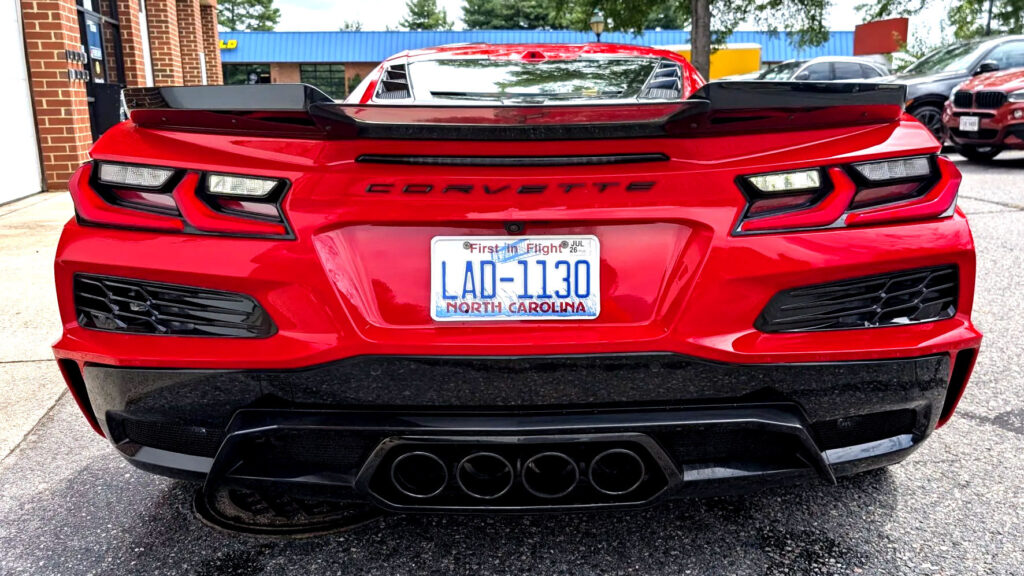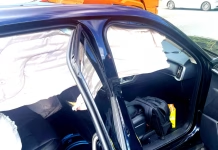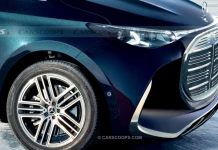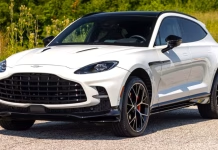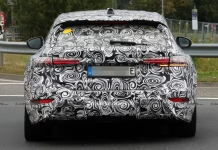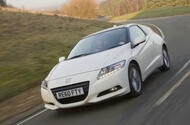Alfa Romeo 8C Auction Showcases Ultra Low Mileage Collector Cars
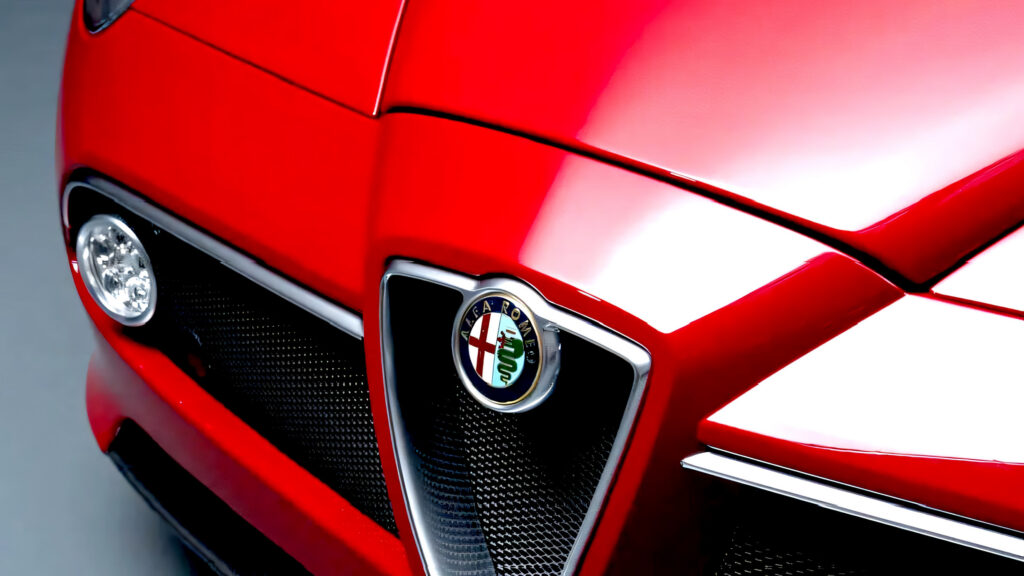
Mazda CX-60 Airbags Unexpectedly Deploy at Highway Speed Leaving Driver Shocked
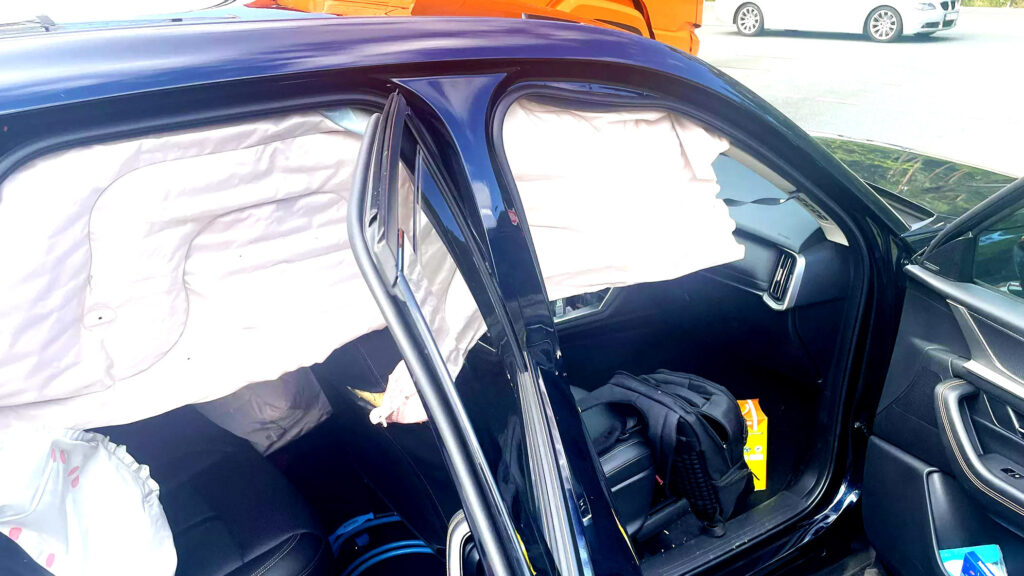
Auto loan crisis hits Americans as debt, defaults, and repossessions surge
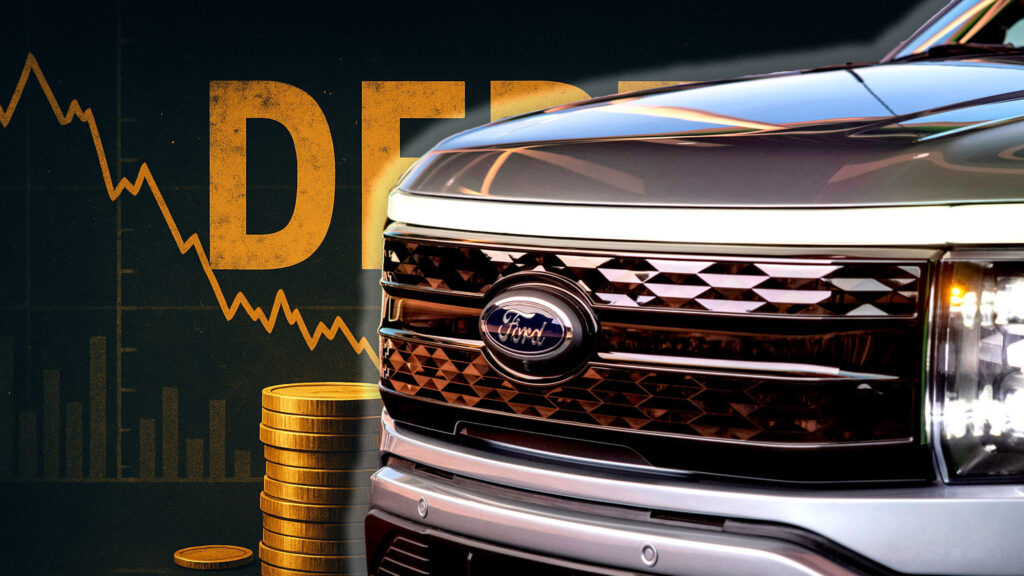
Myotonic Dystrophy Ride Navy Vet Tackles 125000 Miles in 125 Days to Raise Awareness

Mercedes VLE Electric Van Brings Luxury, Power, and Range to the Minivan World
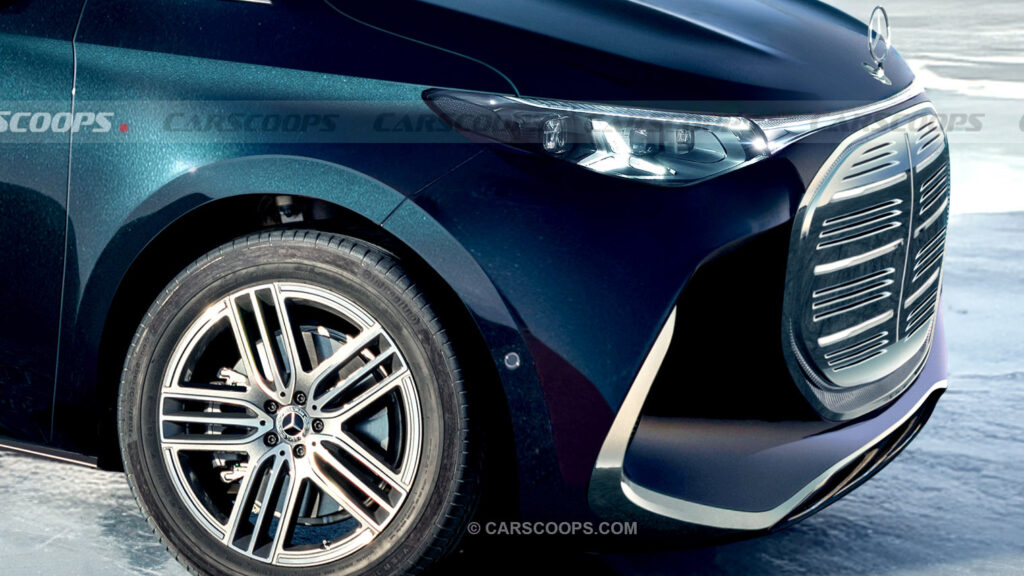
Aston Martin DBX707 Drops Eighty Grand in Months for Nearly-New Luxury and Power
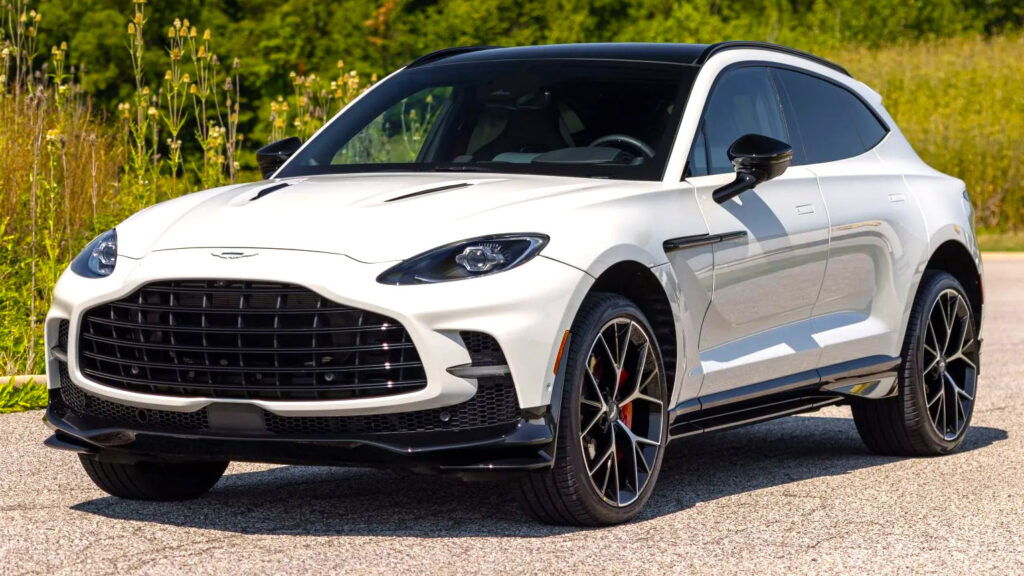
Audi RS6 e-tron brings electric power and up to 800 hp to the super...
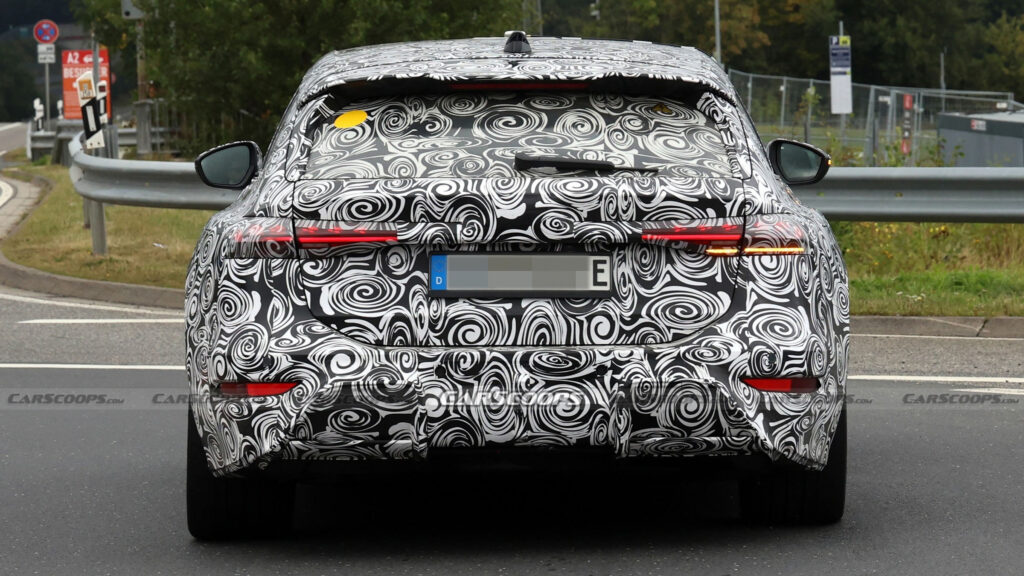
Honda CRZ why this hybrid coupe is an underrated gem with style and efficiency
 Dramatic looks, rock-solid reliability and tuned by a drift legend - yet the CR-Z didn't wow testers of the time
Dramatic looks, rock-solid reliability and tuned by a drift legend - yet the CR-Z didn't wow testers of the time
It should have been a hit, and a big one. All the ingredients were there. The Honda CR-Z reprised a much-loved sports coupé of the 1980s, its high grade innards borrowed from one of the late 20th century’s most far-sighted conceptions and its chassis tuned by a Japanese gentleman well used to viewing his rapid progress via either one of his mount’s front door windows.
Yes, the Honda CR-Z was fine-tuned by Japanese drift king Keiichi Tsuchiya, its hybrid mechanicals owed much to the 1999 Honda Insight – the world’s first mass-produced hybrid – and, despite Honda’s denials, it was inspired by the dinky little coupés that were the first and second-edition Civic CR-X.
You could see that, not only in the sculpting of its diminutive silhouette, but also the near useless rear seat and its encasing within a fabric of different weave to that of the full-scale front chairs, mirroring a quirk of its lively ancestors.
They were livelier, in fact, than this 2010 homage-that was-not. The CR-Z’s battery pack, extra motor, control systems and safety kit added unwelcome heft to the dynamic mix of Honda’s ‘Compact Renaissance Zero’ coupé. Never mind that, though – what you also got was a speedy little wedge capable of travelling well over 40 miles on a gallon while simultaneously enabling its driver to cultivate virtual flowers and victory wreaths with it.
Honda not only provided the technology to go further, but electronic tutoring too. In throttle-dampening Eco mode, the Honda’s instrument pack changed from blue hues to green, a display of naked stems inviting cultivation via your right foot, moderate applications of the same festooning these stems first with leaves, and then with flowers.
Should your horticultural skills improve over your previous trip, you’d be accorded an electronic wreath, too. It was all a bit cartoonish, but Honda reckoned you could squeeze an extra 10% from a gallon if you obeyed the gearshift indicator and the econometer’s bar-graph admonishings.
Your ekings of unleaded would be aided by an electronic conservation programme called Scramble Assist. This was Honda’s intriguing phrase for the table of algorithms extracting the most from battery pack and twin motors when in Sport, Normal or Eco. Those algorithms could usefully have been extended, in fact, to allow you to more easily access the work of Tsuchiya-san, which was most easily uncovered when the Honda was unleashed on a track, its ESP interventions overruled.
But what about the drifting? There was little sign of this capability on ordinary roads, even if you pressed the Sport button, whose most dramatic immediate consequence was turning the instrument display to orange from blue. The throttle turned friskier of course, and the Integrated Motor Assist system delivered usefully more volt-generated torque, but only enough to score a less than CR-X-citing 9.1sec assault on 62mph, and rarely enough to reveal the secret side of this baby Honda’s handling.
To arrive there you needed to abruptly drop the throttle mid-bend, the CR-Z’s rear half turning satisfyingly balletic in the dry, and sudden enough in the wet to give you plenty to do. To enjoy this, though, you needed to attack corners like you didn’t care, the Honda capable of .93g’s worth of hanging on in there despite dangling an inside rear wheel.
The fizzing let’s-go zest of the CR-X had been dulled and the technical and intellectual appeal of the Honda’s hybrid system and its horticultural encouragements were insufficient to maintain interest in this intriguing little car, in Britain at least. The CR-Z’s career here was shorter than planned, imports ending after just four years, a late power hike from 121 to 137bhp failing to ignite sales.
Prices are continuing to drop here in the UK. Clean, low mileage cars can be snapped up for around £3000. Higher mileage cars can be had for £2000 and if you don’t care about MOTs you might find some hanging around the magical £1000 mark.
Toyota Prius How This Hybrid Pioneer Changed Cars Forever
 The Toyota Prius braved the storm of early derision to become the petrol-electric engineering benchmark
The Toyota Prius braved the storm of early derision to become the petrol-electric engineering benchmark
Taxi! It’s the reductive cry of many when a Prius hums into view, Toyota’s pioneering hybrid hatchback having become the ubiquitous Uber for a generation of ride-hailing devotees.
Yet as the petrol-electric model celebrates its quarter century on sale in the UK, does the incredibly efficient and relentlessly reliable Prius deserve to be seen – and appreciated – as more than just a default choice for hard-nosed mini-cabbers?
The obvious answer is yes, of course it does. In fact, the Prius is perhaps one of the most misunderstood and occasionally divisive cars to have hit the roads in the past 25 years.
When it landed on these shores in 2000, diehard petrolheads quickly named it the ‘Pious’ – a swipe at early adopting owners who were evangelical about its tech and fuel-savings.
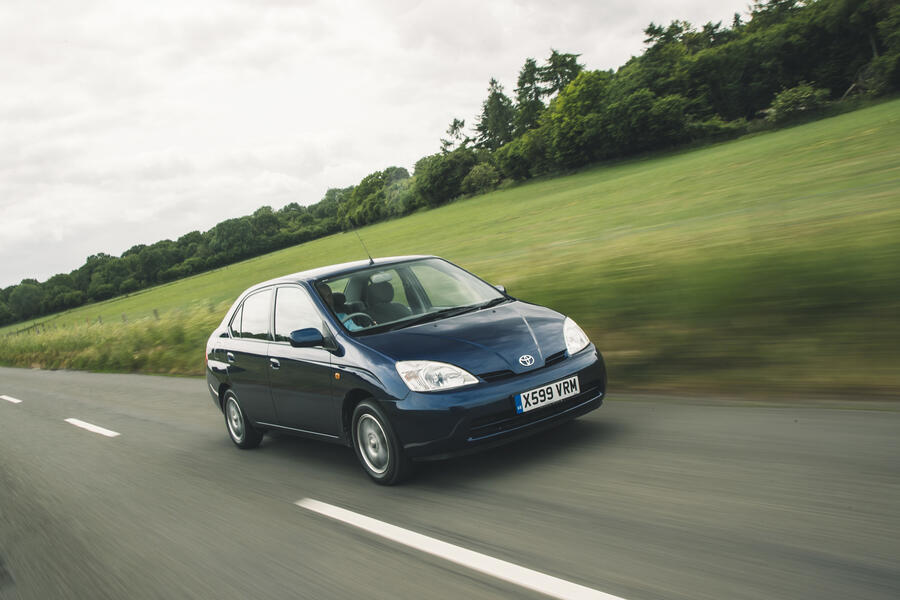
Yet it was also an unlikely Hollywood pin-up, with eco-friendly A-listers such as Leonardo DiCaprio choosing the Prius to scoot between studios.
Either way, over five generations, it has become as familiar a sight on our roads as white lines and temporary traffic lights: more than six million have been sold to date, making it the world’s most popular hybrid.
Those sheer numbers mean Toyota’s engineering brilliance is often overlooked, so it seems an ideal time to get one of the first examples together with the latest version and perhaps reappraise this dual-fuel pioneer.
As is the case today, environmental concerns were very much in the headlines when the Prius first appeared in its native Japan back in 1997, with the result that manufacturers were keen to develop cars that minimised their impact on the world’s resources.
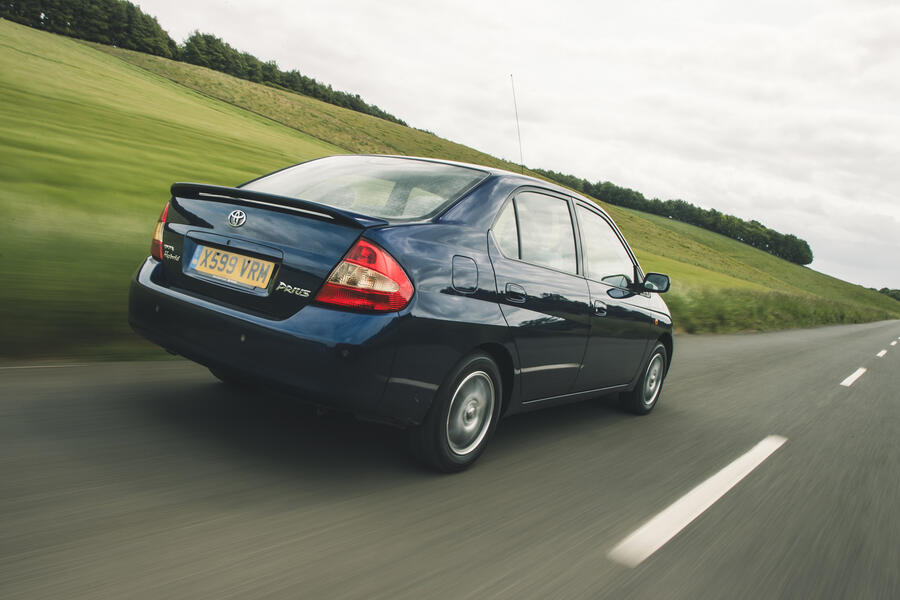
The European approach was to remain faithful to internal combustion engines, installing them in lightweight, low-drag bodies, and the Audi A2 is perhaps the most obvious example.
In Japan, however, petrol-electric hybrids were the order of the day. At roughly the same time the covers were pulled off the Prius, Honda launched its innovative Insight coupé.
Like the A2, it featured a low-calorie construction and wind-cheating bodywork, while under its snub snout was a clever powertrain that was the progenitor of today’s mild hybrids. It was styled like a concept car and built with the same obsessive attention to detail as the firm’s first-generation NSX supercar.
But whatever the Honda’s virtues, it was a sales flop – just like the Audi. Toyota’s approach was slightly different, but in many ways it was in fact more daring.
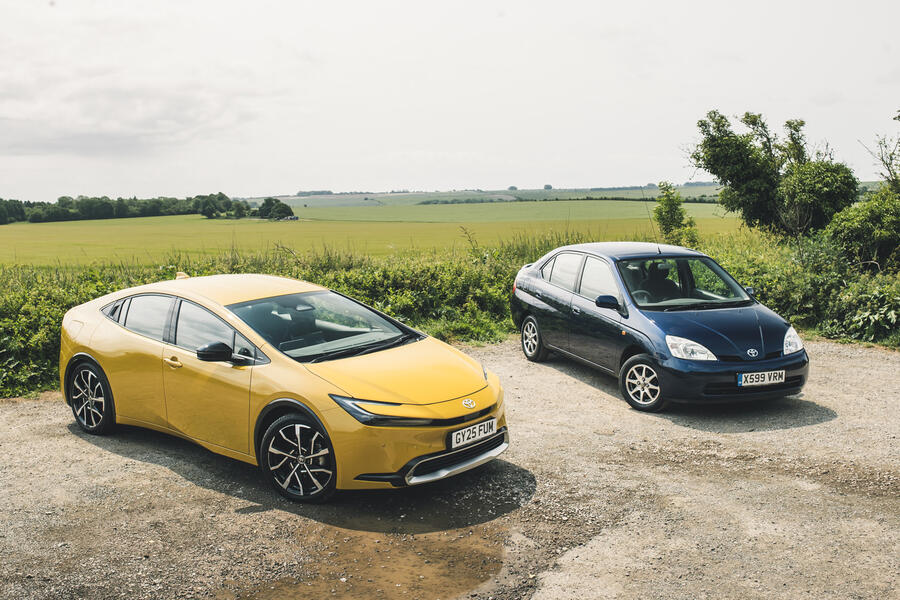
A traditional four-door saloon template made the Prius look like a far more mundane machine, but that sober suit hid a much more sophisticated drivetrain that remains largely the same today as it was all those years ago.
Essentially, it has two electric motors: the MG1 is a starter-generator similar to those in today’s mild hybrids, while the MG2 is the traction motor, which also acts as a generator.
Both of these then have to work harmoniously with the car’s petrol engine, which can be connected to the road wheels at higher speeds or when maximum performance is required, but normally it feeds electricity into the battery.
Making all of these mechanical machinations possible is the ‘power splitter’. Often referred to as a continuously variable transmission (CVT), it actually uses a planetary gearset rather than the usual belts and pulleys.
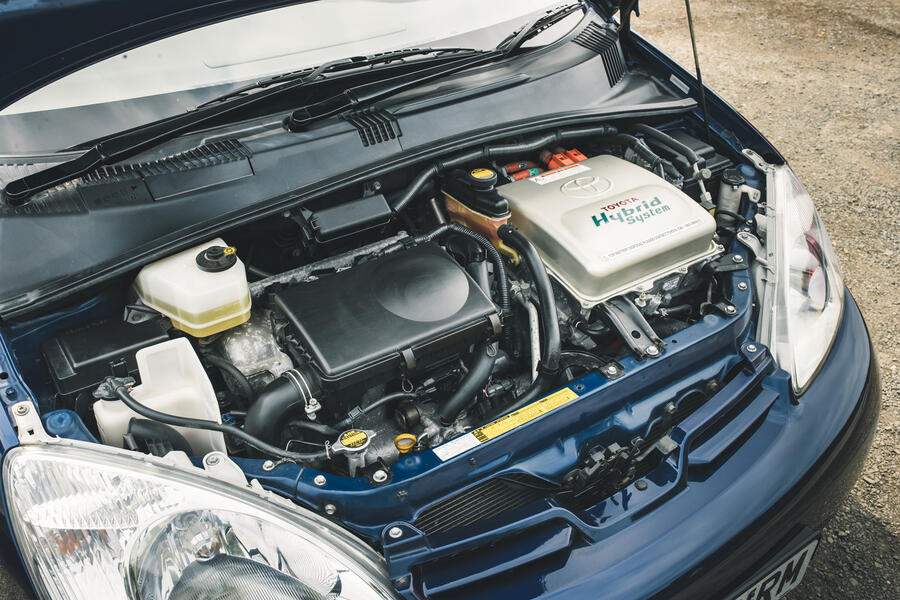
Packed together with the two motors and bolted onto the engine, it uses computers to decide where best to send power depending on the prevailing conditions, allowing it to operate as either a series or a parallel hybrid. Clever, eh?
Approach the Mk1 today and you would never guess at the complexity lurking within. Even in-period, it was a fairly nondescript presence: its tried-and-tested three-box template was at odds with family-friendly contemporaries such as the audaciously angular ‘New Edge’ exterior of the first-generation Ford Focus.
Only when you climb aboard does the Prius start to reveal its status as a cutting-edge practitioner of the petrol-electric art. The squidgy seats trimmed in kitsch crushed velour are pure Tokyo taxi, plus there’s the expected expanse of hard grey plastic.
But set high in the centre of the dashboard is a full LCD digital instrument cluster, while the centre console houses an actual touchscreen. In many respects the OG hybrid car feels bang up to date to drive, which is largely due to the fact that any current hybrid Toyota is running essentially the same powertrain.
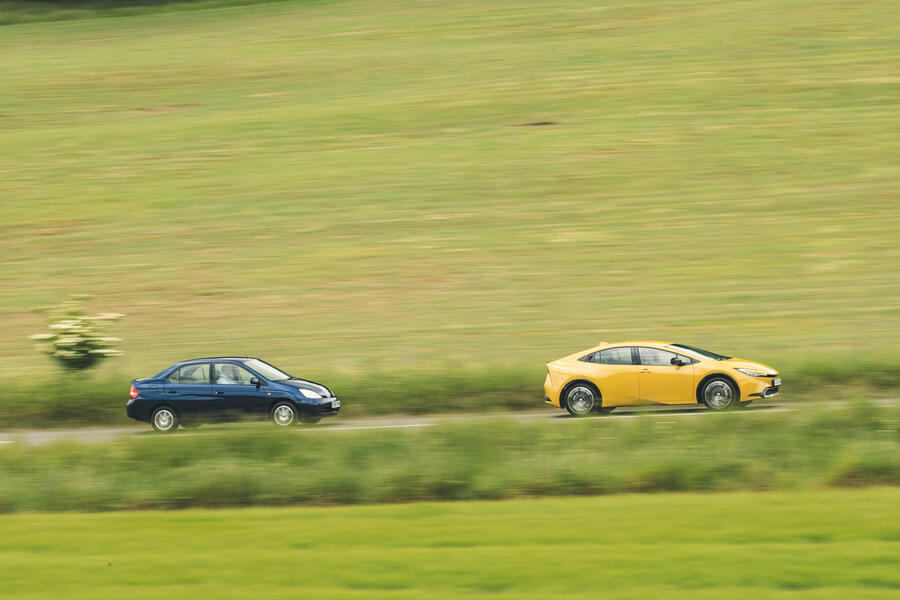
Pull the chunky, dashboard-mounted gear selector into drive and squeeze the throttle, and the Toyota pulls away in silent EV mode.
Push the accelerator a little harder and the engine fires into life, while pinning it into the carpet for maximum forward motion results in revs being held somewhere around peak torque as the power splitter feeds the generator’s demand for maximum electricity (it’s this behaviour that hoodwinked many to assume the Prius had a conventional CVT transmission).
With a combined 98bhp on tap, progress is leisurely. The ICE has to be worked hard, but the uninterrupted, EV-style delivery and the option of enhanced regenerative braking with the B mode gives this Prius surprisingly contemporary vibes. It’s refined, too, with the 1.5-litre motor’s efforts being suppressed enough not to grate even when pressing on.
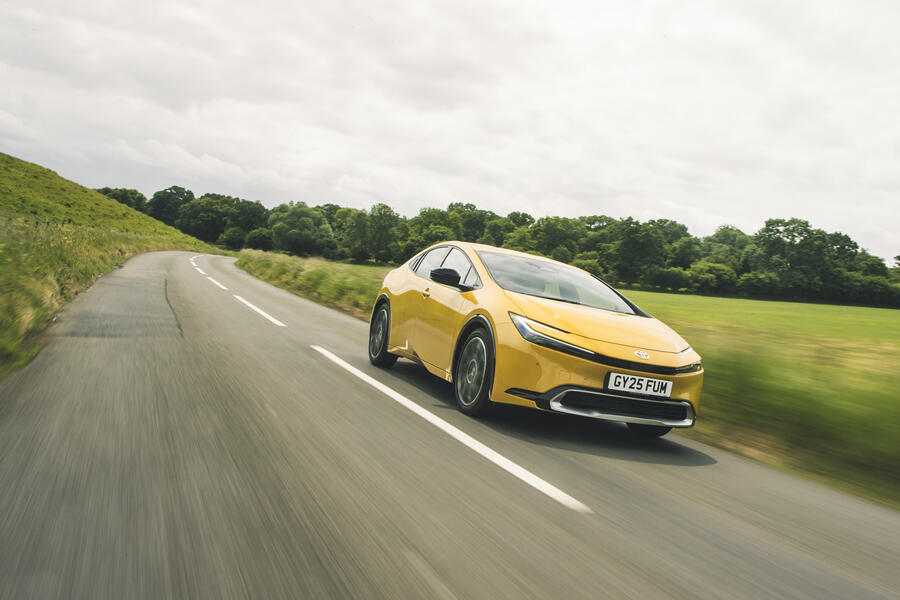
According to the trip computer it’s also returning an easy 50mpg-plus, despite being driven fairly briskly. Although, like many hybrids, the inconsistent transition from regenerative to friction braking makes it almost impossible to slow smoothly in a hurry.
However, it’s the chassis that really dates the car. Its slow-witted steering, skinny-tyred deficit of grip and loose body control prove to be a reminder of a time when, sports cars aside, Toyotas were faithful and functional but rarely fun.
Still, the upshot is a nicely absorbent – if floaty – ride that seems pretty well suited to today’s scarred road surfaces. Yet it’s easy to see why the Prius succeeded. Despite its astonishingly complicated powertrain, it’s easy to drive, comfortable, spacious and, crucially, extremely reliable and cost-effective to run.
So it was no surprise when second- and third-generation models arrived over the coming years. The looks became more arresting and there was the addition of more power-dense lithium-ion batteries and even a plug-in option, but the basic recipe remained the same.
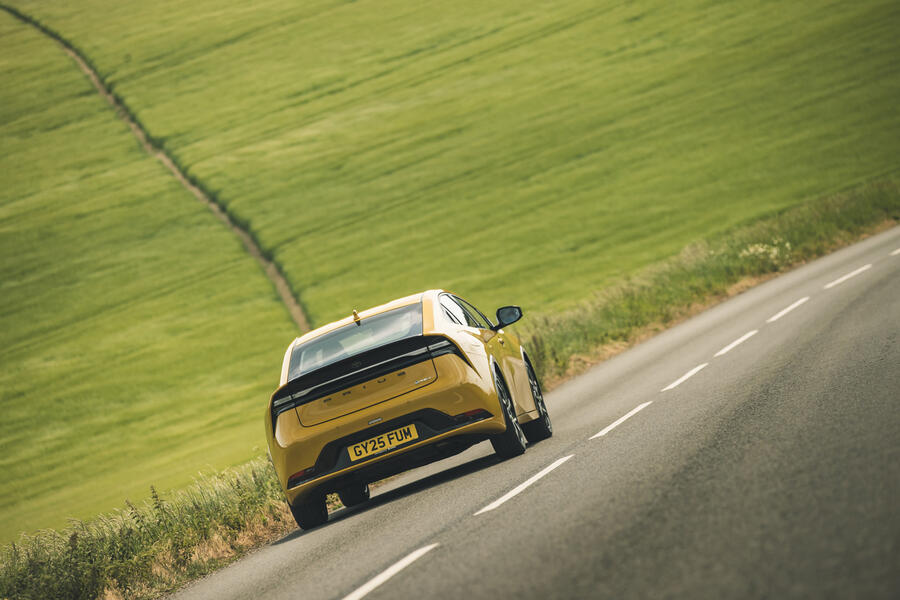
When the Mk4 Prius arrived in 2016 it was built on the brand’s TNGA architecture, which also meant a decent dose of driver engagement. Even so, when that car’s production run came to an end in 2022, Toyota UK decided against bringing its replacement to our shores.
With its C-HR crossover and collection of Corollas, the manufacturer reckoned it had all its hybrid bases covered, that there was no room on the price lists for a Prius. Then late last year Toyota relented, reinstating the plug-in version in showrooms.
Compared with its dumpy ancestor, the sleek new car is a real feast for the eyes. Snapper Jack Harrison suggests that our test car’s sunny hue and teardrop profile give it the look of a lemon, but to this tester it’s a visual treat.
Stick some flush wheel covers on and it could have passed as a futuristic automotive background model in Blade Runner 2049. This attention to detail extends to its engineering.
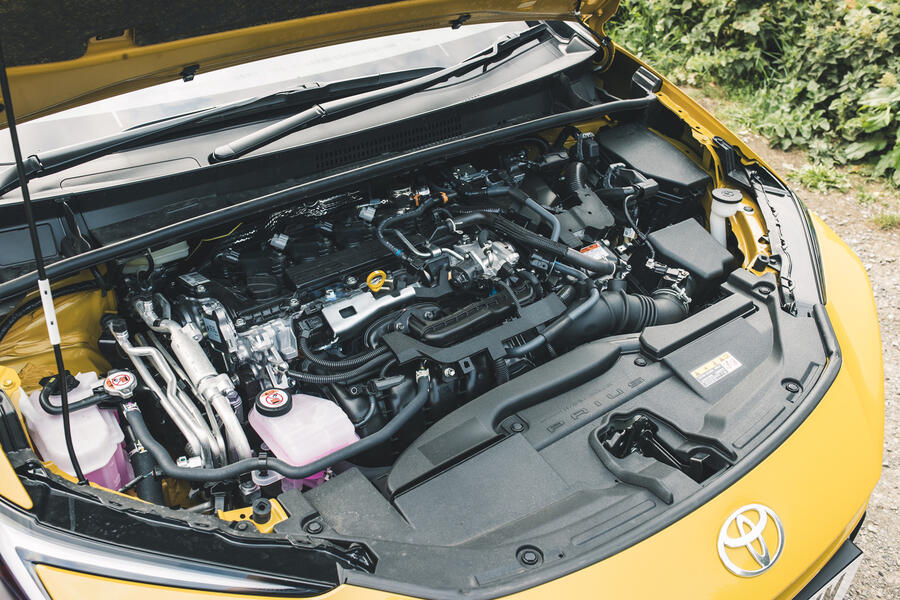
The latest hybrid system works in much the same way as ever, but it has been honed and refined for enhanced power and efficiency. Moreover, despite greater safety, a stiffer shell and a larger lithium ion battery that gives a claimed EV range of 53 miles, the Toyota tips the scales at as little as 1545kg, making it a flyweight in a world full of two-tonne-plus EVs and SUVs.
And this is all before you consider the way it drives. With 220bhp available, it accelerates with the eagerness of a hot hatch, and the relationship between throttle, motor, engine and power delivery is now carefully honed to deliver a more natural feel with almost none of the elastic-feeling CVT lag.
There’s also a rare fluidity to the chassis, which allows the car to scythe quickly and accurately through corners yet ride the lumps and bumps with impressive deftness, even on our example’s larger 19in rims.
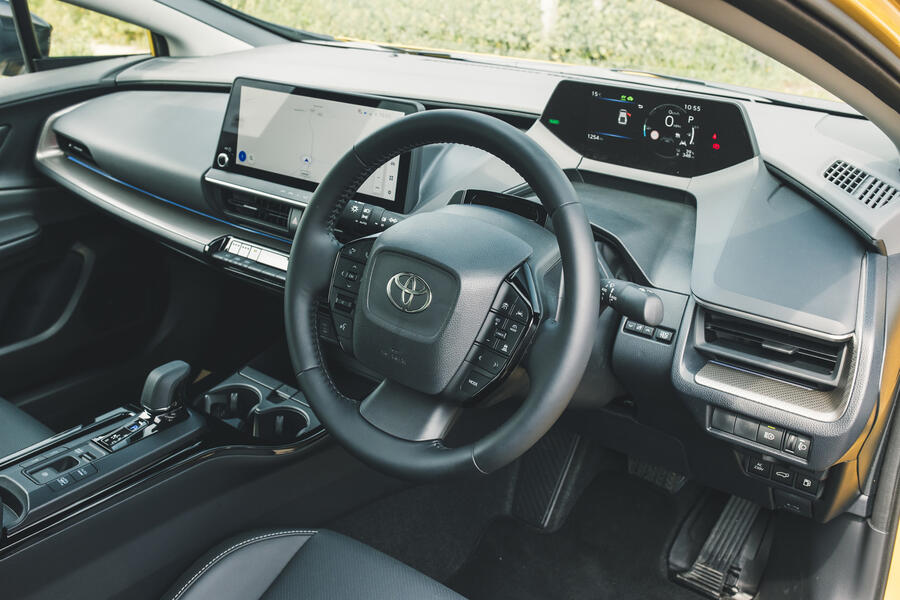
Better still, the brakes are now brilliant, offering a firm pedal and a progressive action. This is a genuinely satisfying car to steer, one that might just tempt you to abandon the well-worn groove of your commute and seek a more interesting alternative back home.
If you love cars for their innovative design and engineering as much as you do for the way they go down the road, then you’ll have plenty of time for the Prius. And as with the older models, once you’ve tuned into the hybrid’s way of doing things there’s a peculiar satisfaction in getting the best out of it.
Moreover, in the clarity of its thinking and unwillingness to follow the herd, it captures the spirit of Citroën at the height of its hydropneumatic pomp, or Saab at its single-minded best. After 25 years and millions of sales, the Prius doesn’t need to justify its existence: like it or loathe it, the Toyota is a bonafide success.
Who knows what the next quarter century holds for the Prius? But whatever happens we should pay it our dues and recognise this hybrid trailblazer as one of the most influential cars yet produced. What we do know, though, is that if you’re a minicab driver, you’ve never had it so good.
Corvette Z06 Prices Plunge Making Supercar Performance a $100K Bargain
